- DISABILITY GUIDE
- 5. how do i apply for disability BENEFITS?
5.5 What Is a Consultative Examination?
WHAT IS A CONSULTATIVE EXAMINATION

Consultative examinations are medical examinations that Social Security disability and SSI claimants are sometimes sent to while processing a claim for disability benefits.
What is the purpose of a Consultative Examination?
If the medical evidence provided by the claimant’s own medical sources is insufficient for Social Security to determine if he or she is disabled (records are
sparse) or if the claimant has not been seen by a doctor in quite some time, additional medical information or clarification may be sought from the claimant’s medical sources, or by arranging for a consultative examination (CE). The intended purpose of a consultative exam is to generate medical documentation or diagnosis so that the state’s Disability Determination Service can make an informed decision regarding the patient, without overlooking any conditions that have not recently received diagnosis or treatment.
Who performs the Consultative Examination?
The treating source is the preferred source of purchased examinations when the treating source is qualified, equipped and willing to perform the additional examination or tests for the fee schedule payment. SSA’s rules provide for using an independent source (other than the treating source) for a CE or diagnostic study if:
- The treating source prefers not to perform the examination;
- There are conflicts or inconsistencies in the file that cannot be resolved by going back to the treating source;
- The claimant prefers another source and has a good reason for doing so; or
- Prior experience indicates that the treating source may not be a productive source.
Where a CE is conducted by a doctor other than the claimant’s treating source, there are doctors who perform consultative examinations for the SSA who are actually independent physicians contracted to perform such services for the SSA. Consultative exams (CEs) are not conducted by doctors who work for the Social Security Administration (SSA). (In fact, there is no such thing as an SSA doctor), although there are physicians in each DDS (Disability Determination Services) who assist the DDS disability examiners in their decision-making duties.
What happens at a Consultative Examination?
The type of examination and/or test (s) purchased depends upon the specific additional evidence needed. If a supplementary test (e.g., X-ray) will furnish the additional evidence needed, Social Security will not request or authorize a more comprehensive examination.
If you’re physically impaired, the physician may conduct a comprehensive examination that includes looking at your complete medical history plus additional laboratory and physical testing. On the other hand, if your impairment is one of a mental nature, a psychiatrist or psychologist will conduct a series of psychological tests.
Your consultative examination might not be a comprehensive one, however. If your existing medical records are just missing a certain piece of information about your health, you’ll only need to undergo that specific test or procedure that will give the Social Security Administration the missing information (for example, an x-ray, breathing test, blood test).
Once the claimant receives a Consultative Examination notice, which includes the date, time and location of the examination, the claimant is to appear at the examination on time, is to cooperate with all instructions and must not exaggerate or fake symptoms during the exam.
Who pays for a Consultative Examination?
The Social Security Administration will pay for your consultative examination. You will not have to pay anything for the examination, even if your own physician performs it. The Social Security Administration will even pay your travel expenses, if substantial travel is required for you to attend your examination.
Are there Limitations or Problems with a Consultative Examination?
Consultative medical examinations are not necessarily the best way to get evidence to decide a disability claim. For one thing, a doctor who conducts a consultative exam has typically never seen a claimant. Although DDS examiners often send a portion of a claimant’s medical records to the physician who will conduct the CE (to appraise the doctor of the client’s medical background), some CE doctors don’t actually read the file ahead of time. In any case, a CE can be a poor substitute for an established doctor-patient relationship.
Additionally, Social Security medical exams tend to be fairly brief. It is a common complaint among claimants who have gone to such examinations that the duration of the exam was only 5-10 minutes. Though this may not be true for every CE, it is probably true for a large percentage of them.
Getting an appointment letter for a Social Security medical examination means, at the very least, that a claim is actively being worked on. In some cases, it may be that a claims examiner who is leaning toward making an approval needs to obtain additional evidence, such as an x-ray.
However, a CE appointment can also mean that a claimant has very little in the way of medical records. In such cases, the scheduling of a consultative examination may simply be a technical necessity (examiners are required to obtain “recent” medical evidence on which to base their decisions) prior to closing a case (and denying benefits).
Since you may never know the reason for scheduling an exam, don’t be overly concerned about having to go to an exam. However, you should always attend a scheduled CE since claims examiners are allowed to close disability claims for “failure to cooperate,” except when a claimant has a valid reason for missing a scheduled exam (in which case the claims examiner will usually allow for the examination to be rescheduled)
What if I Don’t Show Up to a Consultative Examination?
Use your best efforts to attend your examination. If you don’t show up, the Social Security Administration could use whatever information it has available on file to make its decision. If your file is incomplete, they might deny your claim. However, if you have a valid reason for missing your examination, it should be scheduled for a later date.
Here are some related articles you may find interesting:
- NAVIGATING CLAIMS
- 5 MINUTE READ
- 7 Minute Read
- DISABILITY BENEFITS
- 5 MINUTE READ
- 7 Minute Read
- NAVIGATING CLAIMS
- 5 MINUTE READ
- 7 Minute Read
- DISABILITY BENEFITS
- 5 MINUTE READ
- 7 Minute Read





